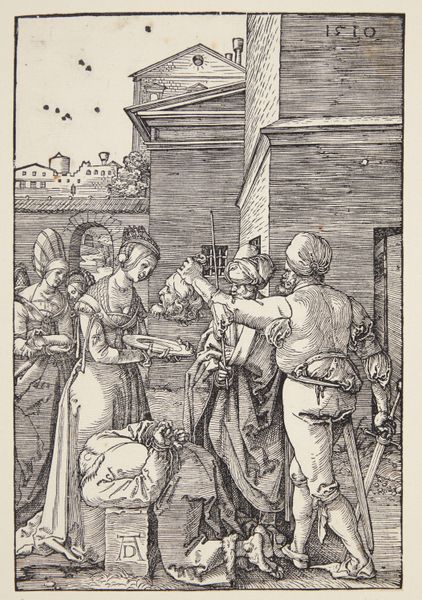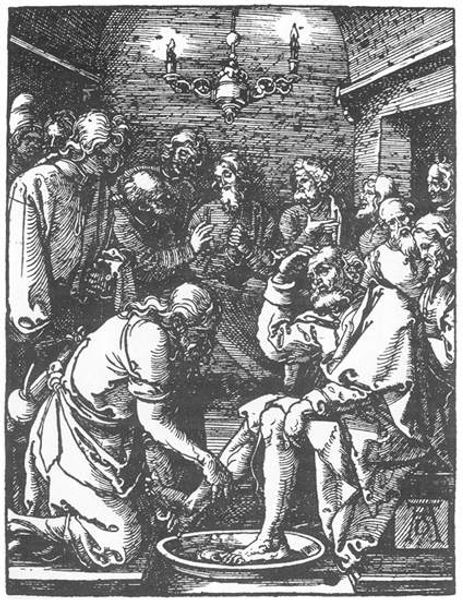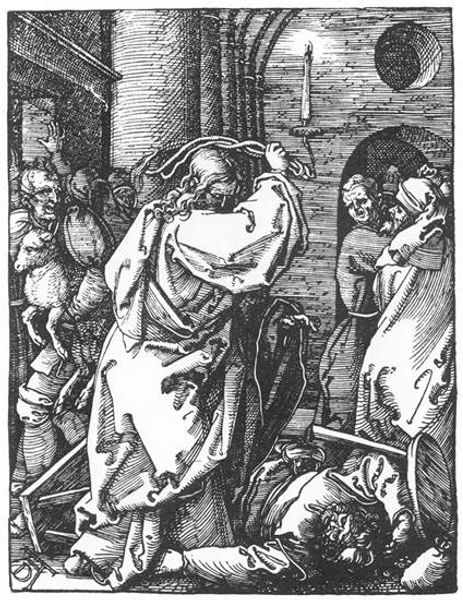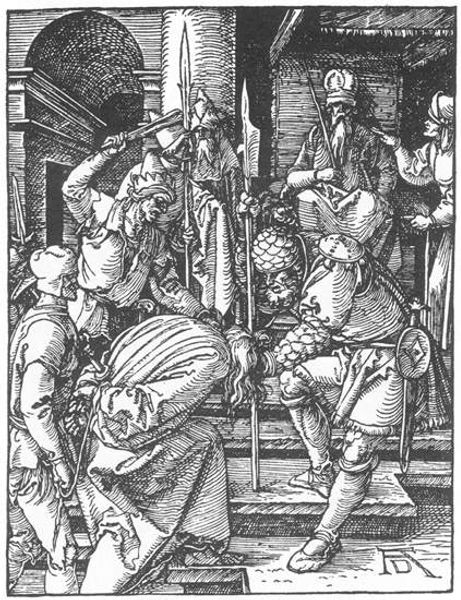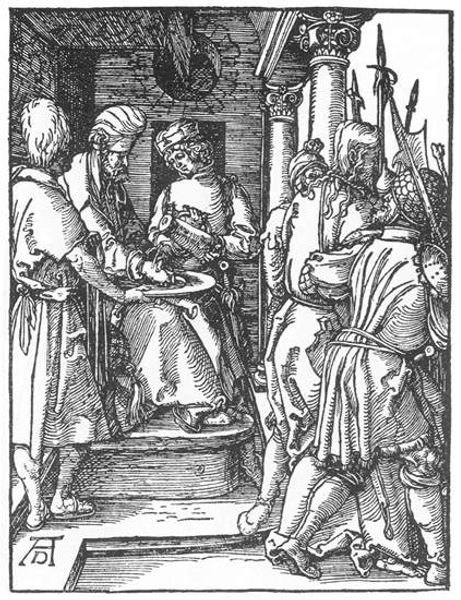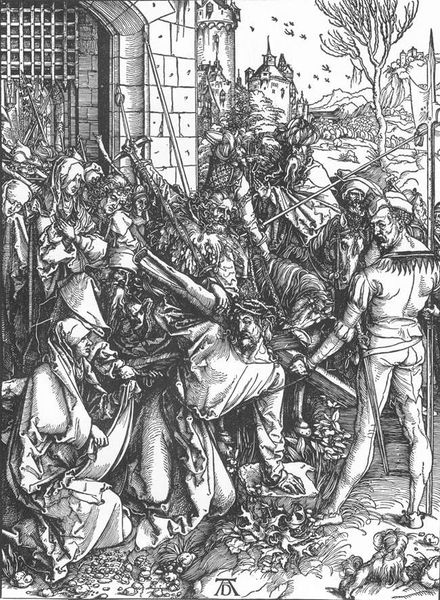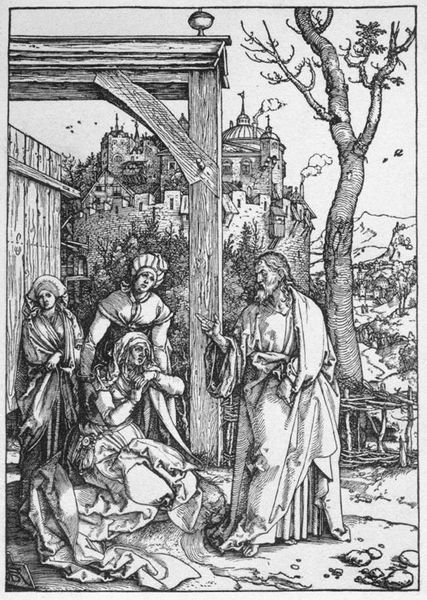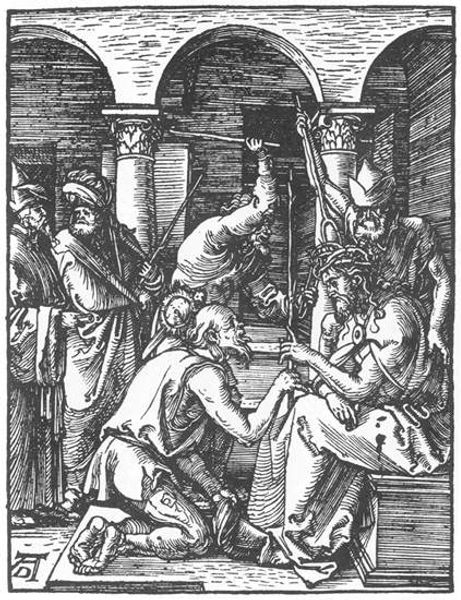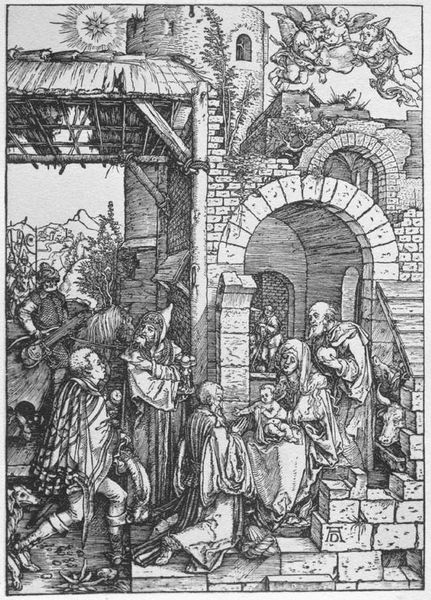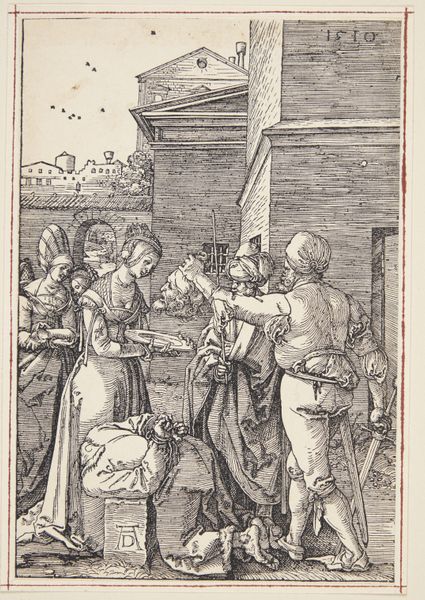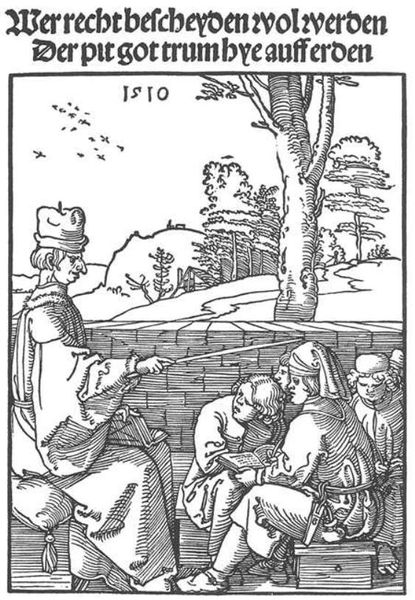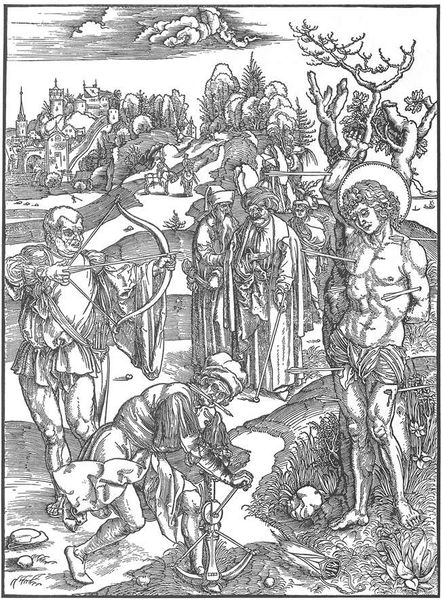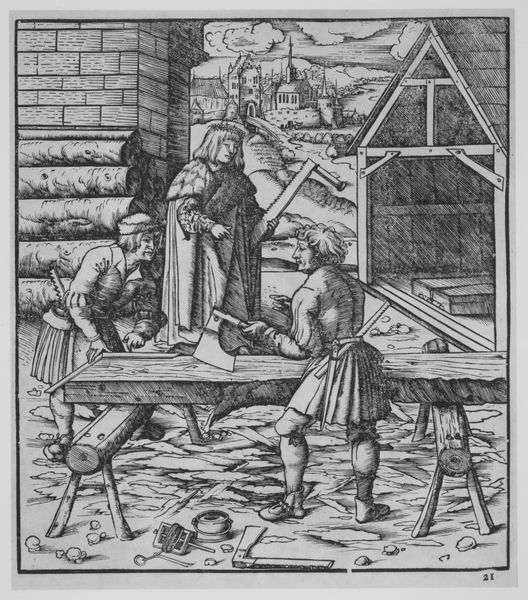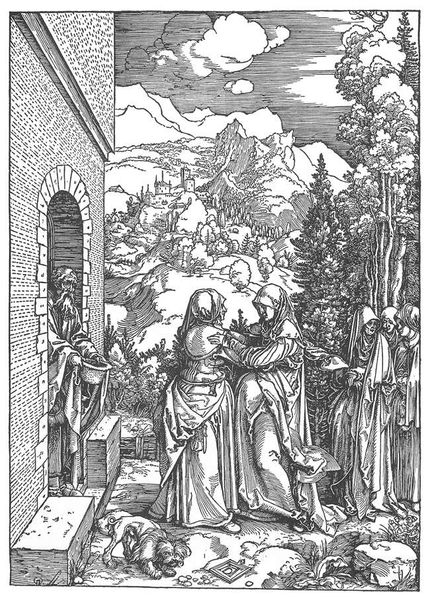
print, engraving
#
portrait
# print
#
christianity
#
history-painting
#
northern-renaissance
#
engraving
#
christ
Copyright: Public domain
Albrecht Durer created "The Beheading of St John the Baptist" using a woodcut technique, a relief printing process where an image is carved into the surface of a block of wood, with ink applied to the remaining surface. The material qualities of the woodblock directly influence the print's appearance. The stark contrast between black ink and white paper is a result of the carving process, where the artist meticulously removes wood to create fine lines and details. The labor-intensive process underscores the value placed on craftsmanship during the Renaissance, when printmaking enabled the wider distribution of images and ideas. Durer's mastery of this medium allowed him to create intricate compositions that would have been accessible to a broad audience. The print bridges the gap between fine art and craft, showcasing how skilled artisans like Durer elevated traditional techniques into high art forms. This woodcut reminds us that understanding an artwork requires appreciating both its visual impact and the socio-economic context of its creation.
Comments
No comments
Be the first to comment and join the conversation on the ultimate creative platform.
